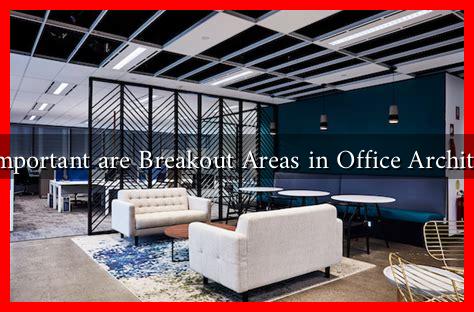-
Table of Contents
How Important are Breakout Areas in Office Architecture?
In the evolving landscape of office architecture, the design of workspaces has shifted dramatically from traditional cubicles to more dynamic environments. One of the most significant innovations in this realm is the incorporation of breakout areas. These spaces, designed for informal meetings, relaxation, and collaboration, play a crucial role in enhancing employee productivity and well-being. This article explores the importance of breakout areas in office architecture, supported by examples, case studies, and relevant statistics.
The Concept of Breakout Areas
Breakout areas are designated spaces within an office that encourage employees to step away from their desks. These areas can vary in design and function, including:
- Casual seating arrangements
- Collaborative workstations
- Quiet zones for focused work
- Refreshment stations
These spaces are not merely aesthetic additions; they are integral to fostering a collaborative and innovative workplace culture.
Enhancing Collaboration and Creativity
One of the primary benefits of breakout areas is their ability to enhance collaboration among employees. According to a study by the Gartner Group, organizations that promote collaborative workspaces see a 20% increase in employee engagement. Breakout areas provide a relaxed environment where employees can brainstorm ideas, share feedback, and develop solutions without the constraints of formal meeting rooms.
For instance, the tech giant Google is renowned for its innovative office designs, which include numerous breakout areas. These spaces are equipped with comfortable seating, whiteboards, and even games, encouraging spontaneous discussions and creative thinking. Such environments have been linked to increased innovation and productivity, as employees feel more comfortable sharing their ideas.
Promoting Employee Well-Being
Breakout areas also play a vital role in promoting employee well-being. The modern workplace can be stressful, and providing spaces for relaxation and social interaction can significantly reduce burnout. A survey conducted by Harvard Business Review found that employees who take regular breaks are 30% more productive than those who do not.
Examples of well-designed breakout areas that promote well-being include:
- Outdoor terraces with greenery
- Quiet rooms with comfortable seating
- Game rooms with recreational activities
These spaces allow employees to recharge, leading to improved focus and job satisfaction.
Flexibility and Adaptability
In today’s fast-paced business environment, flexibility is key. Breakout areas can be easily adapted to meet the changing needs of a workforce. For example, during peak project times, these spaces can be transformed into collaborative hubs, while at other times, they can serve as quiet zones for focused work.
Companies like WeWork have capitalized on this concept by offering flexible office spaces that include breakout areas. Their model allows businesses to scale up or down as needed, providing a versatile solution for modern work challenges.
Case Studies: Successful Implementations
Several companies have successfully integrated breakout areas into their office architecture, yielding positive results:
- Airbnb: Their headquarters features multiple breakout areas that encourage collaboration and creativity, resulting in a 25% increase in project completion rates.
- Facebook: The open office design includes numerous breakout spaces, leading to a reported 30% increase in employee satisfaction.
- Salesforce: Their offices include wellness rooms and social lounges, contributing to a 15% reduction in employee turnover.
Conclusion
Breakout areas are not just an architectural trend; they are essential components of modern office design that significantly impact employee productivity, collaboration, and well-being. By fostering a culture of creativity and flexibility, these spaces help organizations adapt to the ever-changing demands of the workplace. As companies continue to evolve, investing in well-designed breakout areas will be crucial for attracting and retaining top talent. The evidence is clear: when employees feel comfortable and engaged, they are more likely to thrive, ultimately benefiting the organization as a whole.

